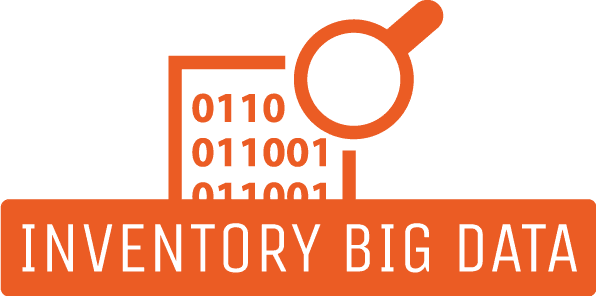Data of Technical Director
Description
As the Technical Director, Samuel is responsible for overseeing the technical aspects of a company’s operations. He manages a team of engineers and technicians to ensure that projects are completed efficiently, on time, and within budget.
KPI’s
For a Technical Director in an industrial company, some KPIs that could be considered are:
- Project Completion Rate: This KPI measures the percentage of projects completed on time and within budget. The Technical Director is responsible for ensuring that projects are executed efficiently and effectively.
- Technical Innovation: This KPI measures the number and quality of technical innovations introduced by the Technical Director. This could include new technologies, processes, or products that improve the company’s competitiveness and profitability.
- Technical Expertise: This KPI measures the level of technical knowledge and expertise of the Technical Director. This could include certifications, publications, or participation in technical conferences.
- Employee Development: This KPI measures the Technical Director’s ability to develop and mentor their team members. This could include employee retention rates, employee satisfaction surveys, or career progression within the company.
- Budget Management: This KPI measures the Technical Director’s ability to manage the department’s budget effectively. This could include tracking expenses, monitoring resource utilization, and delivering projects within budget.
- Customer Satisfaction: This KPI measures the satisfaction levels of the company’s customers with the Technical Director’s work. This could include customer feedback, ratings, or referrals.
- Health and Safety: This KPI measures the Technical Director’s ability to maintain a safe and healthy work environment for employees. This could include accident rates, compliance with safety regulations, and employee wellness programs.
By measuring these KPIs, the Technical Director and their team can ensure that they are making progress towards achieving the company’s goals and objectives, and continuously improving their performance.
SIPOC
- Supplier: Raw Material Suppliers, Equipment Suppliers, Maintenance Services, Technical Consultants
- Inputs: Customer Requirements, Technical Specifications, Budgets, Production Plans
- Process: Technical Design and Development, Prototype Testing, Production Planning and Execution
- Outputs: Product Designs, Prototypes, Production Plans, Technical Reports
- Customers: Sales and Marketing Teams, Production Teams, Customers
As the Technical Director, the role involves managing the technical design and development process to ensure that the products meet the customer’s requirements, technical specifications, and budget. This would involve working with various suppliers such as raw material suppliers, equipment suppliers, maintenance services, and technical consultants to ensure that the necessary resources are available for the design and development process.
Once the technical design and development process is complete, the Technical Director would be responsible for overseeing the prototype testing process to ensure that the products meet the required quality standards. This would be followed by the production planning and execution process to ensure that the products are produced in accordance with the production plans.
The output of this process would be the product designs, prototypes, production plans, and technical reports, which would be used by the sales and marketing teams to promote the product, the production teams to produce the product, and the customers to use the product.
Throughout the process, the Technical Director would need to work closely with his team to ensure that everyone is working together efficiently and effectively, and that any issues or problems are resolved quickly to minimize any disruptions to the design and development process. The Technical Director would also need to collaborate with other departments such as sales and marketing, production, and customers to ensure that the technical design and development process aligns with the company’s overall goals and objectives.
Role of data
As a Technical Director in an industrial company, your role is crucial in ensuring that the company’s operations are efficient and effective. To do this, you need to have access to accurate and reliable data that can inform your decisions and guide your strategies. In this article, we will discuss the importance of data in your role and how it can help you achieve your goals.
Firstly, data plays a critical role in helping you understand the performance of your company’s operations. By analyzing data from various sources, such as production output, energy usage, and maintenance records, you can identify patterns and trends that can inform your decision-making. For example, if you notice that energy usage has increased significantly in a particular area of the factory, you can investigate the cause and take steps to reduce it. Similarly, if you notice that certain equipment is breaking down more frequently, you can explore options to replace or repair it.
Data can also help you optimize your company’s operations. By analyzing data from different stages of the production process, you can identify areas where improvements can be made. For example, if you notice that there is a bottleneck in the production line, you can explore ways to streamline the process and improve efficiency. Similarly, if you notice that certain products have a higher defect rate than others, you can investigate the cause and take steps to improve quality.
In addition to optimizing operations, data can also help you identify opportunities for growth and expansion. By analyzing data on market trends, customer behavior, and competitor activity, you can identify areas where your company can expand its product offerings or target new markets. For example, if you notice that there is a growing demand for a particular type of product, you can explore options to develop and market it.
Lastly, data can help you monitor and manage risk. By analyzing data on safety incidents, compliance issues, and other risks, you can identify areas where improvements can be made and take steps to mitigate potential risks. For example, if you notice that there is a high incidence of safety incidents in a particular area of the factory, you can investigate the cause and take steps to improve safety procedures.
In conclusion, as a Technical Director in an industrial company, data plays a crucial role in helping you understand, optimize, and grow your company’s operations while managing risk. By leveraging data, you can make informed decisions that can improve efficiency, quality, and profitability while reducing risk. Therefore, it’s essential to prioritize data collection and analysis to ensure you have the information you need to make sound decisions.
Additional information
| Publication |
|---|


